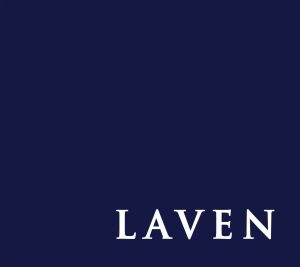The UK is set to leave the single market and the European Economic Area (“the EEA) by the end of this year. This means that for UK based investment managers and other regulated firms there will be a loss of access whether under MiFID, AIFMD or UCITS passports. As Brexit draws closer and the EU/UK exit negotiations report too little progress, it appears that the likelihood of a no-deal Brexit scenario has further increased. That being said we expect a last-minute deal but it may not cover the passporting of financial services.
Regardless, it is our duty to focus on what is or is not possible post-hard Brexit for the financial services industry. Whilst initially Laven Group, through an affiliate based in Luxembourg, aimed at providing a solution that would be comprehensive and within MiFID, we have now had to review this position. Laven Group will no longer seek to be linked to any one solution and will only work to help clients to find a solution that works for them. We believe that with further developments there will not be a panacea for all clients. We came to this conclusion having observed various developments since September 2020.
The Laven Brexit Team, which was set up 3 years ago to work on Brexit consulting and potential solutions, including procuring the set up of a MiFID compliant one-stop-shop in Luxembourg, has concluded that for our client base, namely Private Equity fund managers, long and long-short fund managers, sub-investment managers, and more broadly brokers and corporate finance advisors, there is no longer the prospect of any one convenient solution for a variety of factors which we outline below. No subset of this client base was in any privileged position either that would have made the opening of an EU solution worthwhile. In our recent review, we once again sought to cover all angles while working closely with the law firms we are connected to in the EU and the UK to verify our analysis. We now realise that any set up would be too onerous or not pragmatic enough for clients, raising the regulatory risk. In this context, the risk to clients and service providers means that any solution becomes prohibitively expensive. We still believe that the market will have some solutions and we will be here to help assess their relevance for each client.
In summary, we have for the last few years covered the following options, which have broadly been assessed as Brexit solutions by the market, notably with a focus on relying on a EU based entity (usually a MiFID firm) offering to ‘host’ a non-EU client or its staff:
- Secondment of employees to EEA regulated firm; or
- Tied agents under MiFID.
We also covered other options that may be less onerous but may depend again on a client’s desire to invest in the EU, namely:
- Becoming authorised in the EEA and relying on Temporary Permissions Regimes;
- Marketing funds as authorised products under National Private Placement Regimes;
- Pre-marketing of AIFs; or
- Reverse solicitation.
We do not cover here the possibility of being hosted as a Management Company (“ManCo”) or AIFM in the EU, as naturally, this has benefits which are already in existence, and which are unchanged by Brexit, although it is likely some of the operational basis for such businesses may be challenged in due course (see the ESMA Letter below).
Secondment of employees to EEA regulated firm
We received a lot of inquiries from our clients regarding options whereby UK-based firms allow their employees to work under another authorised firm in the EEA to continue fund distribution and other regulated activities in the EEA. In practice, these arrangements are called secondments. Other clients in the broker space are also considering this as a solution and whilst in theory it is available to all, the requirement of substance does make it less likely to be useful to those that require more frequent interaction with a European-based buy-side.
The purpose of this model is to second a UK salesperson to an EEA regulated investment firm to bring their expertise on particular products and to reach out to potential investors located in the EEA. These activities would take place under the EU-based investment firm’s EEA passports and be closely monitored to ensure the local conduct of business rules are observed. It is important to note that such activities must, with regards to the secondee, take place only in the EEA and thus we hit one of the first hurdles as to how the business should be conducted. Questions arose as to how to monitor an employee going back and forth across the border and taking calls or emails whilst not in the EEA. Clearly, for the Private Equity sector which may choose to market only during a short window, this may be easier to achieve than a broker looking at regular contact with an EU buy-side contact. Nevertheless, both could quite easily be faulted and the ultimate sanctions could be very expensive.
There are other complications with a secondment arrangement. In Luxembourg, for example, the Commission de Surveillance du Secteur Financier (the ‘Luxembourg Regulator’ or ‘CSSF’) considers secondment to be a local matter (i.e. relevant to the main party’s domicile) when it comes to social security or employment tax. It also expects regulated firms to define explicitly in such agreements how long the secondee is seconded for and details as to the exact role of the secondee, as this has a material impact on the regulated firm. These add to the burden of making good this process in practice and will require discipline as well as organisation. We feel that for many clients and their sales staff, this is overly complex and not the ‘simple’ solution they are looking for. The social security and employment tax elements also add to the costs of the operation. Finally, the ‘duration’, which in this case would have to be limited, is also an issue for which there is no clear answer. If staff are only deemed to be seconded for 6 months, what do you do thereafter?
Some other aspects are easier to comply with. For example, the secondee is required to clearly represent that he or she acts for the regulated investment firm, and therefore some form of double branding is required. This is easy enough in practice; however, some clients have expressed reservations as to the implications for their brand and potential brand dilution. This links to other practical matters such as which email address or phone line one should use for follow-ups, all leading to potential confusion and later remonstrations from the regulator.
In light of this, when the recent ESMA Letter to the European Commission was released (albeit in the context of the AIFMD review), we felt there was already a regulatory ‘dislike’ of any attempt to circumvent the rules on the EU market being one, notably through hosting/secondments. The Letter notably refers to the following:
‘ESMA has also observed an increasing use of secondment arrangements where staff from professional services firms/consultancies or group entities are seconded to the AIFM or UCITS management company on a temporary basis. In some of those cases, the seconded staff was not operating in the Member State of establishment of the authorised AIFM or UCITS management company, but in another Member State or even outside of the EU (e.g. staff of other group entities being seconded to the authorised entity in the EU but continuing to work from their usual offices outside of the EU on a secondment rather than delegation basis). This raises questions whether those secondment arrangements are in line with the substance and delegation rules set out in the AIFMD and UCITS frameworks. Further legislative clarifications could be helpful to address these questions.’
ESMA’s comments pertaining to secondment under the AIFMD allow us to infer that there will be more scrutiny from the regulators to ensure that secondees spend time in the country of the host regulated firm. Similarly, Michael Hodson (Director of Asset Management and Investment Banking of the Central Bank of Ireland) in his speech – Reflections on Brexit, insights on supervision and enhancing diversity – emphasised that “In the area of distribution of funds, we have seen proposals to use secondments of former UK staff into Irish entities. This can work, but only where, in the opinion of the Central Bank, there is sufficient management resource and organisational structure, and where no other risks are present, (such as, for example, conflicts of interest), so that overall the structure in relation to control and risk management satisfies the Central Bank. However, if the secondment is structured simply as a device to circumvent the EU rules then we will have no appetite to approve such arrangements. Indeed, we have not approved a number of arrangements which we saw as legalistic, technical or indeed even artificial attempts to do just that.”
In light of the above, it is probably fair to say that similar principles will apply to MiFID activities.
So for clients wishing to work within secondment arrangements, assuming they have their own firm in the EU or have access to a host willing to take on the social security, tax and regulatory risk, we would recommend that:
- The host employer is a properly established authorised firm which meets the substance and other relevant requirements, which cover rules on the secondee’s behaviour supported by proof of travel or use of office space, etc.
- The secondees spend contractually predefined time in the host country, with a time limit for the secondment
- The secondees explicitly represent that they act for the authorised firm under which they work with relevant practical arrangements to evidence the same, including monitoring of communications
Tied agents under MiFID
Tied agents are exempt from authorisation requirements as they are providing regulated services under the authorisation of a separate firm in respect to MiFID business in the EEA. In the context of Brexit, the MiFID business would be third-party fund distribution activities, although it could cover other MiFID activities.
This arrangement was quite appealing as Britain had offered a nice precedent and thus in the UK, it is common for MiFID firms to appoint entities and individuals as their tied agents. Also known as the UK Appointed Representatives regime, it has been a very worthwhile and useful way to promote the UK as a financial centre and allow more entrepreneurial businesses or foreign businesses to add staff and a degree of operations in the UK. From there, the Appointed Representative or tied agent may benefit from the EU passport of the host firm. The idea was to replicate this from Luxembourg, Portugal, Malta, Ireland etc.
We analysed and tested the tied agent concept in the EEA. Our search took us to all main jurisdictions. Of these, Luxembourg became our go-to jurisdiction due to its relative familiarity with the concept and it being a well-respected hub for the finance industry.
However, this solution requires setting up an entity in the EEA or having individual employees in the EEA who are appointed as tied agents of a European MiFID regulated firm located in the same or another Member State as the tied agent. As per MiFID Article 35(2), tied agents established in another Member State are subject to certain notification requirements, thus again causing related employment and cost issues. The need for substance will also be scrutinised, adding to the pressure and possible errors in the conduct of business. We expect more scrutiny in due course on where from and how such activities are conducted. The same issues as outlined above would in theory also apply regarding emails and phone calls, as well as consequential brand dilution. As such, we believe that this is a viable option if the client firm:
- Has an establishment or individuals in the EEA, and
- It has found an EEA regulated firm which is willing to appoint the firm’s representative as a tied agent, which again raises issues on the conduct of business, the substance of those tied agents and them acting in line with the EU prohibitions that will henceforth apply to the UK and/or which have always applied to other countries with similar needs, such as the USA or Hong Kong.
Whilst we recognise the above solutions may work for some, they are by no means self-evident. They will require a lot of monitoring and regular review. We have therefore pushed our analysis further to other potentially helpful solutions or combinations. In the meantime, we have retracted from offering a related hosting solution in Luxembourg.
Becoming authorised in the EEA and relying on Temporary Permissions Regimes
The least cost-efficient but the most certain option allowing the continuation of business in the EEA after Brexit is the establishment of a regulated entity in one of the Member States.
Most of the regulators will allow the continuation of business after the end of the transition period in the case of UK firms aiming to acquire licenses in their jurisdictions. Having analysed the Temporary Permissions Regimes (‘TPR’) (you can read more about TPR in our blog post here) which become applicable upon a confirmed hard Brexit, we can see that the regulators across the EEA are open to approving new license holders and are keen to attract business to their countries.
Note that this option triggers the following:
- Robust substance requirements,
- capital requirements,
- office space and incorporation costs, and
- maintenance of local procedures and policies subject to ongoing controls.
We all recognise that this means operating a new entity in a new jurisdiction with all the usual operational complexities. Whether this is worth it depends on the likelihood of raising assets or transferring staff.
Marketing of AIFs in the EEA under National Private Placement Regimes
Another possibility is to rely on rules that help the promotion of EEA and non-EEA Alternative Investment Funds (‘AIF’) which in some cases can be marketed to EEA investors without local MiFID permissions or any other type of local authorisation. This is because AIFs are not in the scope of MiFID regulated instruments.
However, before commencing the fund marketing activities, the manager of such an AIF needs to register the AIF in question in each EEA member state in which it intends to market that AIF. This registration is done under the National Private Placement Regimes (‘NPPR’). The NPPR registration usually comes with additional local requirements, such as reporting and notification requirements depending on the jurisdiction.
In the same manner, all UK AIFMs with UK AIFs that relied on an AIFMD marketing passport prior to Brexit will now need to register their UK AIFs under the NPPR in each country that they wish to market into.
Please note that some EEA countries do not allow national private placement. In these EEA countries, the only way to distribute AIFs is by using the AIFMD passport which requires an AIFM which has been authorised in one of the EEA countries.
Pre-marketing of AIFs
Before fund registration in the EEA, it is also possible to conduct some limited marketing activities in relation to funds that still exist in their conceptual stage. Marketing activities of conceptual funds are referred to as ‘pre-marketing’. Historically, the pre-marketing definitions and requirements have differed vastly between the EEA member states.
This will change in 2021 when the new AIFMD amendments in relation to pre-marketing will come into force. The purpose of these amendments is to harmonise the pre-marketing rules across all EEA member states. For the first time, pre-marketing has been defined under the AIFMD, and clearer requirements have been set out for managers seeking to rely on pre-marketing exemptions. Of course, this is only relevant to fund managers, not to brokers or corporate financiers.
Reverse Solicitation
An old favourite that was never very useful but worth talking about. It is likely to be of some use but again needs to be genuine to avoid the threat of later legal action. For example, if the UK or US manager has a fund, such as an AIF, which has not been registered for distribution in the target EEA jurisdictions, it is possible for EEA investors to reach out to that manager with the intention to invest into such funds. This practice is widely known as ‘reverse solicitation’. The European Commission defines reverse solicitation as:
‘a request by a professional client regarding units or shares of a specifically designated existing fund without a prior direct or indirect offer or placement (i.e. solicitation) from the management company or on its behalf[2]. This contact is thus to be established only on the investor’s initiative and may not constitute a reaction to previous offers or placements’[3].
Each EEA country has a different approach to reverse solicitation requirements. The common denominator seems to be that reverse solicitation exists when the provision of information in respect of a fund (e.g. sending firm presentations, factsheets, fund constitutional documents, pitchbooks, or distance marketing by any means of communication (e.g. by telephone, website)) takes place after the investor’s own initiative and without any solicitation by the fund manager or their representatives.
In any case, reverse solicitation exemptions are not something that can be used as a credible basis for fund distribution activities in the EEA. The managers have to be able to prove that it was the investors who contacted them first before they invested in a fund. Even with a complete audit trail of past communications, this exposes the manager to higher legal risk, especially since remedies include reimbursement for losses where there was a breach of the rules.
Many clients have asked if we could be a relay of information as a distribution agent or if they could use third-party placement agents, which would lead interested EEA investors to reach out to the UK or US manager. In view of the definition above which covers ‘indirect’ solicitation, all counsels we verified this with agreed that this was not a ‘legal’ possibility.
Reverse solicitation, therefore, does not allow any prior communication of product information by the manager, fund, or any related intermediary. The investor has to conduct their own research and contact the fund manager or intermediary first and on their own volition. We have clients who have had this happen genuinely and then solicited our help to register a fund to accelerate the follow-up investment, but this is not likely to help UK-based managers looking for a distribution channel post-hard Brexit.
Laven’s Brexit Services and Strategy going forward:
In summary, it is our current position that the Laven Group will not pursue a one-stop-shop Brexit solution under MiFID. Laven will continue to consult and advise its clients to consider all solutions on their merits for them. We are probably by now the most advanced group in our Brexit research, having invested heavily in legal verifications of our ideas and options. We wish to continue to share that to help the industry. Firms should therefore consult with their lead counsel and/or with us on a more pragmatic and commercial approach that would seek to meet their needs.
We also see that, with the uptake of our compliance software solutions, the market is driven by a desire to reduce costs and improve efficiency. These savings may be reinvested in opening up in the EEA, and our software may be used to demonstrate compliance even under Brexit solutions in a very pragmatic way. We are continuing to invest in this sector and making the software, which includes the possibility to create any compliance template, more and more global.
The final straw was Covid-19. With the travel difficulties following the second wave of Covid-19 which seems to have taken the US and the EU by surprise, this will lessen the chances of establishing proper substance under the solutions outlined in this summary; notably staff will not be in the EEA as easily, thus causing more issues on where they will actually ‘market’ from, increasing quite materially the regulatory risk.
Laven Brexit Team will continue to support and offer:
- Consulting to help to determine the best solution for all types of clients
- Introductions to EEA regulated firms and local counsels where helpful
- Application support in obtaining regulatory status in France or Luxembourg through our EU team
- NPPR registrations under Article 42 AIFMD where this is identified as a solution
- European Representative services under Article 27 GDPR as an associated service which is legally necessary for this context
Get in contact with the Brexit team to find out more
The rest of the Laven Group will continue to focus on consulting services globally and offering tier 1 compliance technology, which has seen a growth in clients of 100% year on year due to its highly functional user interface and time/cost saving impact.
We remain available to discuss any aspects of this newsletter which is pertinent to the success of many clients and still trust that a deal will be struck that will encompass financial services.
[1] In accordance with the Article 4 of MiFID, a tied agent is defined as a ‘natural or legal person who, under the full and unconditional responsibility of only one investment firm on whose behalf it acts, promotes investment and/or ancillary services to clients or prospective clients, receives and transmits instructions or order from the client in respect of investment services or financial instruments, places financial instruments or provides advice to clients or prospective clients in respect of those financial instruments or services’.
[2] through an intermediary acting on the management company’s behalf.
[3] European Commission, “Report from the Commission to the Council and the European Parliament – Accelerating the capital markets union: addressing national barriers to capital flows” (24 March 2017), Section 2.1.1. Marketing requirements.





